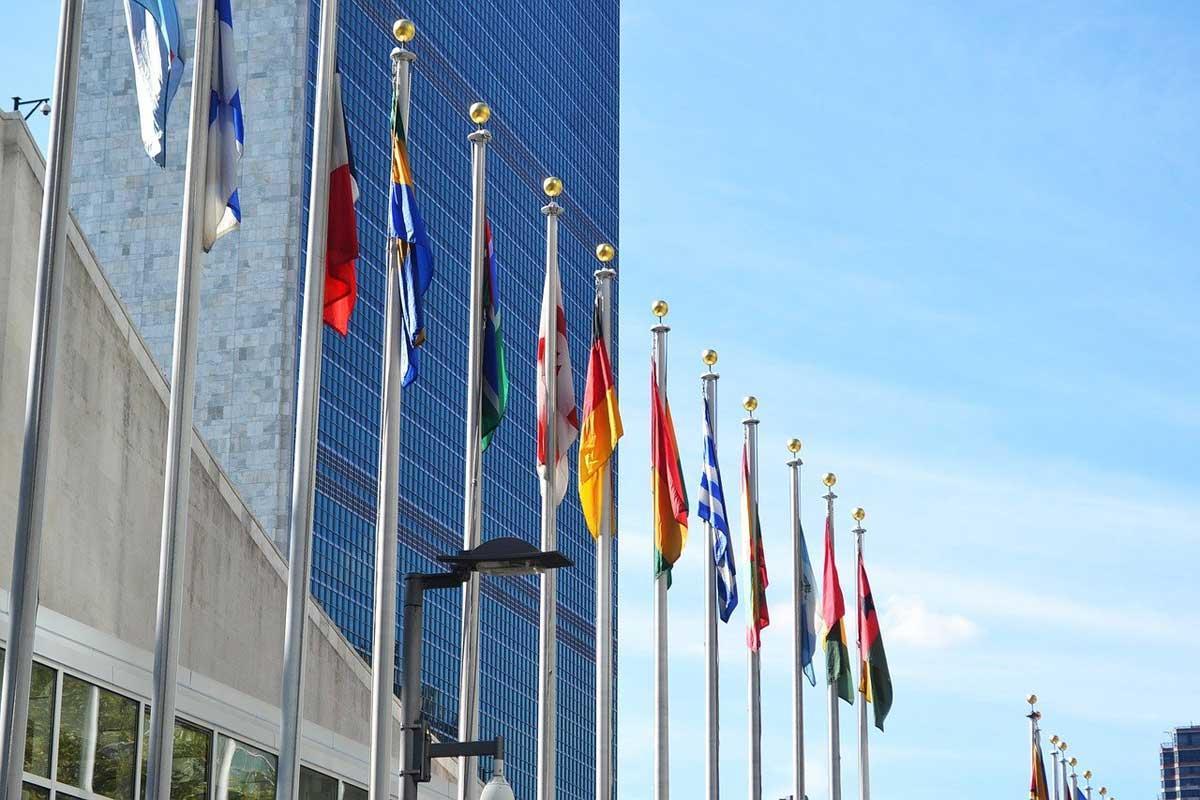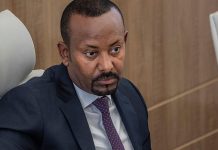BY
PROF. ENGR. ZAMIR AHMED AWAN
Africa-Press – Eritrea. The United Nations is an international organization founded in 1945, just after the World War II. Currently made up of 193 Member Sovereign States. Currently, It the only one platform on the Earth where all the world’s nations can gather together, discuss common problems, and find shared solutions that benefit all of humanity. But, unfortunately, the either the nature of problems faced today or so complicated or some of the nations have become so strong that they do not care the UN or its charter.
The most recent example of Israeli genocide of Palestinians, which despite of the full efforts of UN, could not stop genocide in Gaza. UNSC has passed several resolutions in favor of Palestine long ago, but, Israel denied to implement them for almost Seven Decades. It mean, UN has failed or dysfunctional to protect the human lives.
The misuse of Veto power by the US, for consecutive three times to announce a ceasefire in Gaza, has enabled Israel to commit genocide with full protection from the US. Veto on Gaza Ceasefire will remain a black spot on American foreign policy forever. Historian will never forget it.
There are many other issues, still remain unresolved like Ukraine war, Kashmir issue, etc., where the UN was not effective. In the past, the UN played in the hands of a superpower to kill masses in Afghanistan, Iraq, Libya, Syria, Yemen, etc.
To face the complexity and nature of problems being faced in the prevailing geopolitics, current UN structure may not achieve its original objectives. It is time to think wisely, smartly and collectively, to reform the UN.
Brazil is an emerging power and currently President of G-20. It is an important member of BRICS, and rapidly growing block. It president has described the current situation in Gaza as Holocaust. International bodies are gripped by paralysis, Brazil tells meeting of foreign ministers, while David Cameron blasts ‘Putin and his cronies’
Brazil has put the Bermuda triangle of international diplomacy – reform of the United Nations and other multilateral bodies – at the heart of its presidency of the G20, arguing that the war in Gaza and shifts in the economic power balance finally make change possible.
A two-day meeting of G20 foreign ministers in Rio de Janeiro heard a blunt attack by the UK foreign secretary, David Cameron, on the Russian foreign minister, Sergei Lavrov, over the invasion of Ukraine.
But Brazil said it was trying to steer the G20 away from blame games to solutions. Brazil’s top diplomat, Mauro Vieira, said the explosion of global conflicts showed that international institutions such as the UN suffered from paralysis.
Brazil’s projection as a peacemaker has not been helped by a furious row with Israel over President Luiz Inácio Lula da Silva’s claim on the eve of the meeting that what was happening in Gaza was similar to the Holocaust.
Mauricio Carvalho Lyrio, the Brazilian sherpa at the G20, said the world was facing 183 conflicts and was currently only putting out fires. “The idea is that we have an effective reform of the UN so that it really is an effective instrument to prevent conflicts from occurring,” he said.
Lyrio said Brazil would stage a second meeting of G20 foreign ministers in New York in September at the UN general assembly, to which other UN states would be invited to thrash out a detailed plan.
UN reform has been discussed for more than 30 years and although most states agree that the current structure – assembled in the wake of the Second World War – is archaic, there is no consensus on a replacement, and reluctance among the five countries with permanent seats on the UN Security Council to see their power diluted.
Lyrio said: “There are countries that are in favor of reforming the security council, others that are in favour of strengthening the general assembly or strengthening the economic and social council. Brazil has always been very open to reform as a whole. The UN has to be more representative and more up to date with contemporary needs.”
Lord Cameron told the meeting that reform was necessary but said “global institutions need to be reformed, not completely upended”.
Brazil has floated the idea of the five permanent members on the Security Council – China, France, the US, the UK and Russia – losing their veto if an issue under debate directly affects them.
The UN has found itself sidelined in a succession of disputes, most recently Gaza and Ukraine, two issues that dominated the first day of discussion in Rio. The west and the global south address both issues differently. Lula afforded Lavrov a separate meeting once the G20 ended, underlining how he does not regard the Russian invasion of Ukraine as a barrier to relations.
Lavrov accused the west of double standards, saying: “Instead of a UN-centered architecture, narrow bloc alliances, closed clubs, behind-the-scenes best practices and pseudo-democratic values are being promoted.”
He claimed some western countries had tried to “Ukrainise” the G20 agenda “in every possible way”, something he said the global south rejected. He also rejected an international inquiry into the death of Alexei Navalny.
Josep Borrell, the EU foreign affairs chief, said UN reform was not just about procedural change but changing mindsets.
He said there had been a strong consensus at the meeting for a two-state solution in the Middle East and expressed hope that the Security Council might end the deadlock “by recognizing the principle of the two-state solution through a unanimous resolution that could give it international legitimacy”. He said he expected a new Arab peace plan in the next few days.
On Israel’s conduct, he said: “The issue is not that Israel has to fulfil international law and humanitarian law. Certainly, everybody has to do it. The issue is: are they doing that?”
He said Israel’s compliance with international humanitarian law would be discussed in the framework of the EU-Israel Association agreement, implying the agreement might be brought into question.
Cameron met Arab leaders to discuss the latest stage in the efforts to create a humanitarian pause in Gaza leading to a permanent ceasefire.
Lavrov unusually did not walk out when he came under sustained attack by Cameron and the German foreign minister, Annalena Baerbock, as he has at previous summits, perhaps reflecting greater Russian confidence over the Ukraine war’s outcome.
Baerbock told Lavrov: “If you care about human lives, if you care about your own people, Russian children and young people, you must end this war now.”
Addressing him three seats to her left, she added: “If Russia were to end this war now, the path to peace and justice would be wide open tomorrow.”
As a foretaste to his address to the Security Council on Friday, Cameron told the G20: “There is nothing more serious to the world, which is the whole world gathered here, than this completely illegal and unacceptable invasion of one country by another.
“And the whole world must stand behind Ukraine, support Ukraine and shout that what Putin and his cronies are doing is illegal.”
Although, it is Brazil, but in fact, many countries are thinking on the same lines. The matter of UN reforms have been discussed on several platforms many times. If all the like-minded nations unite and struggle together, can achieve their goals by collective efforts to reform the UN, to transform it a practical, effective and powerful organization. There must be end to hegemony and end to default to UN. No country should be above law and above UN. Respect the Humanity, Respect the UN and contribute to transform this world a better place to live for all.
moderndiplomacy
For More News And Analysis About Eritrea Follow Africa-Press







